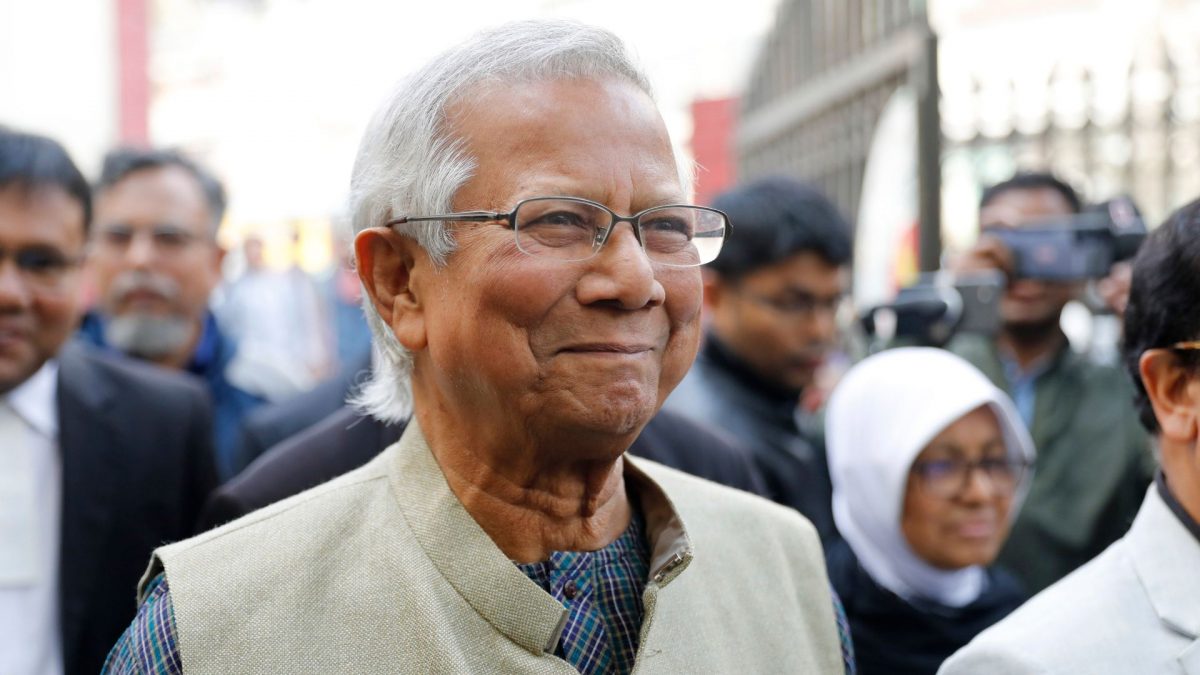It appears to be like a mission almost accomplished for Muhammad Yunus-led interim government in Bangladesh, which has now got legal validity from the high court. In a significant ruling, the high court scrapped a section of the 15th Amendment Act of the Constitution, giving more teeth to the Yunus government as it faced mounting pressure from all quarters to initiate processes for an elected government in Bangladesh.
The now-scrapped section of the 15th Amendment Act of the Constitution of Bangladesh had abolished the non-party caretaker government system.
Removing the section, the Bangladesh High Court clarified that the current interim government led by Yunus is “totally different” and did not fall in this category as it was formed by the country’s president after he sought the opinion of the appellate division of the Supreme Court, reports said.
Not just this, the court also restored the provision for holding referendums for amending the Constitution.
Bangladesh HC clarifies the move
“The abolition of the non-partisan caretaker government system has destroyed democracy, the process of free and fair elections, independence of the judiciary and the sovereignty of people, which are the basic structures of the constitution,” the Bangladesh HC observed.
The court, in its ruling, further said that abolishing the non-party caretaker government system was “unconstitutional and void as it undermined democracy, free and fair elections, and judicial independence — fundamental pillars of the constitution’s basic structure”.
It further said that restoration of the caretaker government system will make way for holding elections under a “non-partisan” government.
The scrapped parts of the section of the 15th Amendment Act was brought in 1996 to introduce the non-party caretaker government system, bringing about significant changes to the charter.
Impact Shorts
More ShortsAccording to a report by Bangladesh news outlet The Daily Star, the 15th Amendment Act was passed on June 30, 2011, by the Jatiya Sangsad. The amendment introduced the provisions for holding parliamentary polls within 90 days before a parliament’s tenure ends; gave more powers to the war crimes tribunal; and also made it mandatory to display the portrait of Father of the Nation Sheikh Mujibur Rahman at all government offices.
In its verdict, the high court said a total of 54 changes, modifications, and substitutions have been brought to Bangladesh Constitution through the 15th amendment.
The HC did not delve into other provisions of the 15th amendment that deal with state principles, including secularism, socialism, state religion, nationalism; the issues of displaying the portrait of father of the nation, historic speech of Bangabandhu Sheikh Mujibur Rahman on March 7, 1971; increasing the number of reserved seats for women in parliament from 45 to 50; protection and development of culture and tradition of the tribes, minor races, ethnic sects and communities; protection and improvement of environment and biodiversity; and article 116 of the constitution regarding presidential control over lower court discipline.
“The future parliament will decide on these issues on the basis of people’s opinions,” Justice Farah Mahbub said.
Former Prime Minister Khaleda Zia’s Bangladesh Nationalist Party (BNP) welcomed the court’s decision. The BNP said the restoration of the caretaker government system fulfilled people’s expectations. It also alleged that former Prime Minister Sheikh Hasina had scrapped the system to serve her party’s (Awami League) interests, paving the way for “one-party rule”.
“People’s will is the basis for changing the constitution, but the previous government did not bother with the people’s will while making the 15th amendment. They made the amendment by putting pressure on the court,” the BNP’s Vice-Chairman Zainul Abedin said.
)